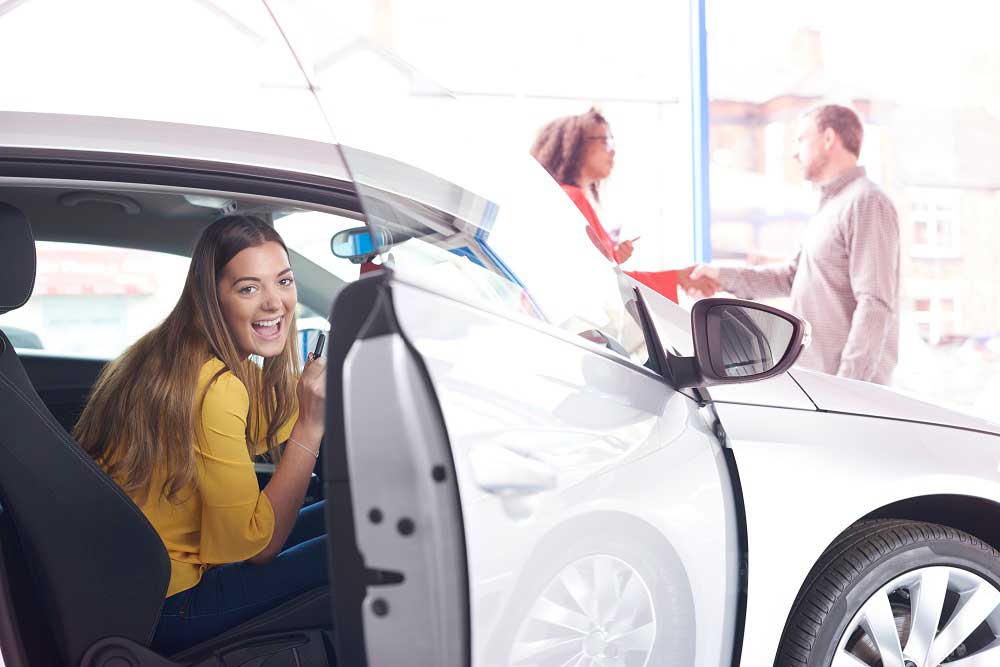Seven steps to buying a car

1. Identify your needs
Think about what you'll be using the car for, whether it be travelling to work in city traffic, going on off-road adventures, setting off on lots of long road trips or something else. Do you need a compact car, one with a lot of space or one for handling rough terrain?
Ensure the vehicle has enough storage space, seats, towing capacity and comfort to suit your lifestyle. Fuel efficiency is also an important factor that is often overlooked.
Gadgets are another way to upgrade your ride and enhance your experience on the road. Many newer car models now give buyers the option to include reverse parking cameras, emergency braking, blind spot assist technology and front cameras. Comfortable or heated seats, decent room and even cup holders can make the difference for those who spend a lot of their time behind the wheel.
2. Research
Once you've decided on what's best for you and your lifestyle, it's time to find a car that fits the bill.
There are so many websites that can help you find facts and stats on different types of cars. Check out the car's safety rating, fuel efficiency, additional extras, practicality, size and cost.
RACQ also offers a great range of professional car reviews which outline all the pros and cons of different makes and models so you can make a decision easier.
3. Budget
Look at your finances or speak with a lending specialist to determine your budget. Maybe your parents might chip in some money to lessen the financial burden.
Be sure to consider the ongoing car costs too.
Hidden costs can add up and being aware of exactly how much you'll need to pay can keep you ahead of the game.
4. Inspection
It is a good idea to have anyused car inspected by a qualified mechanic before you buy it. A safety certificate isn't a substitute for a comprehensive vehicle inspection. RACQ provides a range of different vehicle inspection options with discounts available for members.
Make it a priority to also get a Personal Property Security Register check to determine if there is any money owing on the vehicle from the previous owner, or if it is listed as stolen or written off.
5. Compare dealers
There's a lot of competition out there so have a look and see if you can get a better deal. Some car dealers might offer more money for trade-ins, throw in additional options or extra items, or offer discounts.
6. Important documents
Always get a copy of any contract, warranty documents and for used vehicles, the safety certificate. Make sure any promise or guarantee is in writing, and don't sign anything unless you're completely happy.
7. Insure your car before you drive away
You wouldn't buy a house without insurance, so why should your car be any different?
Shop around and do your research to find the right fit for you and your car – this can include things like whether the car is in a garage or outside.
Related topics
Things to note
The information in this article has been prepared for general information purposes only and is not intended as legal advice or specific advice to any particular person. Any advice contained in the document is general advice, not intended as legal advice or professional advice and does not take into account any person’s particular circumstances. Before acting on anything based on this advice you should consider its appropriateness to you, having regard to your objectives and needs.
Insurance Products (excluding Travel Insurance) are issued by RACQ Insurance Limited ABN 50 009 704 152 (RACQI) and arranged by its agent, RACQ Distribution Services Pty Ltd (RDS) ABN 35 116 361 650, AFSL 567130 and RDS' authorised representatives (including RACQ Operations Pty Ltd ABN 80 009 663 414, AR No. 234978 (RACQO). Conditions, limits and exclusions apply. RDS and RACQO are in the RACQ group of companies. One of the companies in the RACQ group of companies has a minority shareholding in RACQI.
RDS and RACQO have not taken your personal objectives, circumstances or needs into account when preparing advice regarding insurance products and you will need to consider whether the advice is appropriate for you. Read the Product Disclosure Statement (PDS) and any applicable Supplementary PDS before making a purchase decision on this product. You can also access our Target Market Determinations on this website. RDS receives a commission from RACQI for the policies it arranges. RACQO receives fees paid for services it provides to RDS. Further details about remuneration are available on request prior to purchasing.
Banking and loan products issued by Members Banking Group Limited ABN 83 087 651 054 AFSL/Australian credit licence 241195 trading as RACQ Bank. Terms, conditions, fees, charges and lending policies apply. This is general advice only and may not be right for you. This information does not take your personal objectives, circumstances or needs into account. Read the disclosure documents for your selected product or service, including the Financial Services Guide and the Terms and Conditions, and consider if appropriate for you before deciding.
Except for RACQ Bank, any RACQ entity referred to on this page is not an authorised deposit-taking institution for the purposes of the Banking Act 1959 (Cth). That entity’s obligations do not represent deposits or other liabilities of RACQ Bank. RACQ Bank does not guarantee or otherwise provide assurance in respect of the obligations of that entity, unless noted otherwise.
RACQ Bank subscribes to the Customer Owned Banking Code of Practice which establishes higher standards than the law requires. The Code reflects modern consumer expectations and developments in approaches to issues such as consumer vulnerability, guarantors, and supporting customers through financial hardship. Please read our Customer Owned Banking Code of Practice page for more information.
RACQ Operations Pty Ltd (ABN 80 009 663 414 AR 000234978) and Members Travel Group Pty Ltd (ABN 45 144 538 803 AR 000432492) are acting as an Authorised Representative of the issuer of the insurance, Tokio Marine & Nichido Fire Insurance Co., Ltd. (ABN 80 000 438 291 AFSL 246 548). Any advice set out above is general in nature only, and does not take into account your objectives, financial situation or needs. Before purchasing any travel products, please consider the RACQ Travel Insurance Product Disclosure Statement (PDS) and the Target Market Determinations (TMDs) that apply to these products. Whilst the PDS outlines the Terms and Conditions of these products, the TMDs outline the intended class of customers that comprise the target market for these travel products. This will allow you to consider which products best suit your objectives, financial situation and needs and consider the products appropriateness to your personal circumstances. TMDs also outline matters involving the distribution and the review of these products. The PDS, Supplementary PDS and TMDs for each travel product can be found here.
